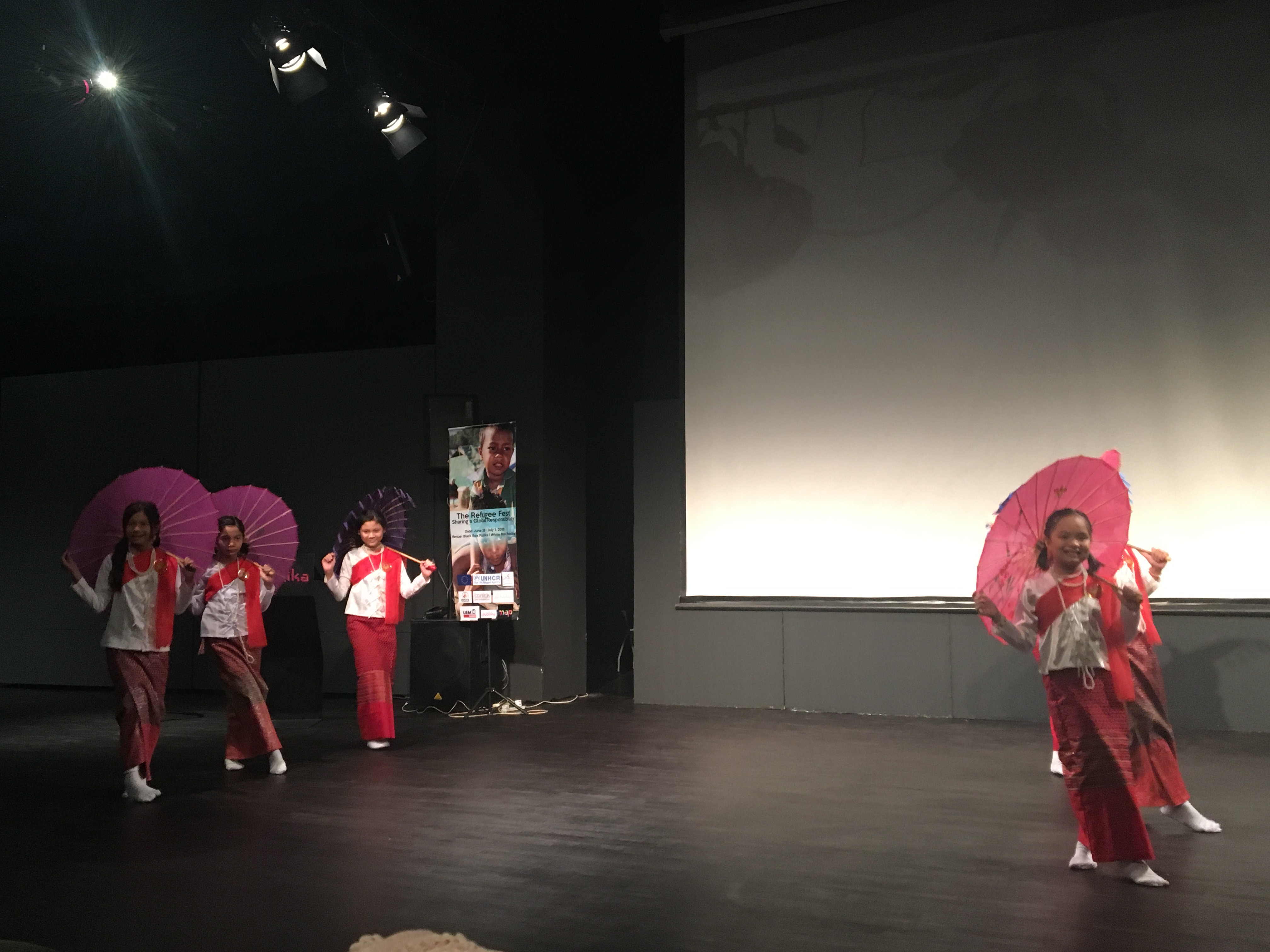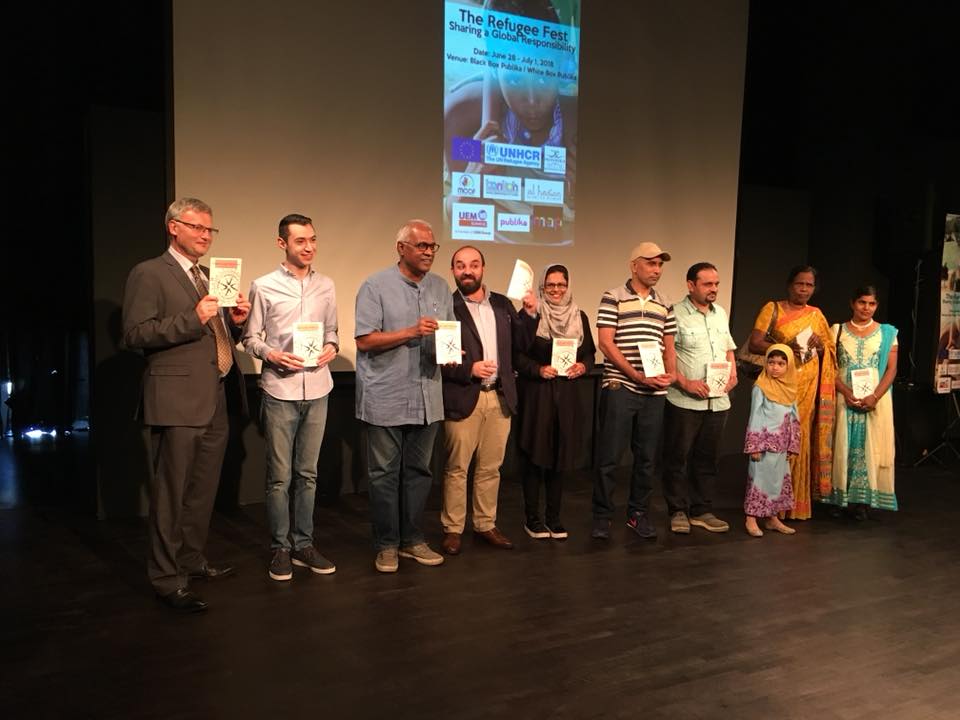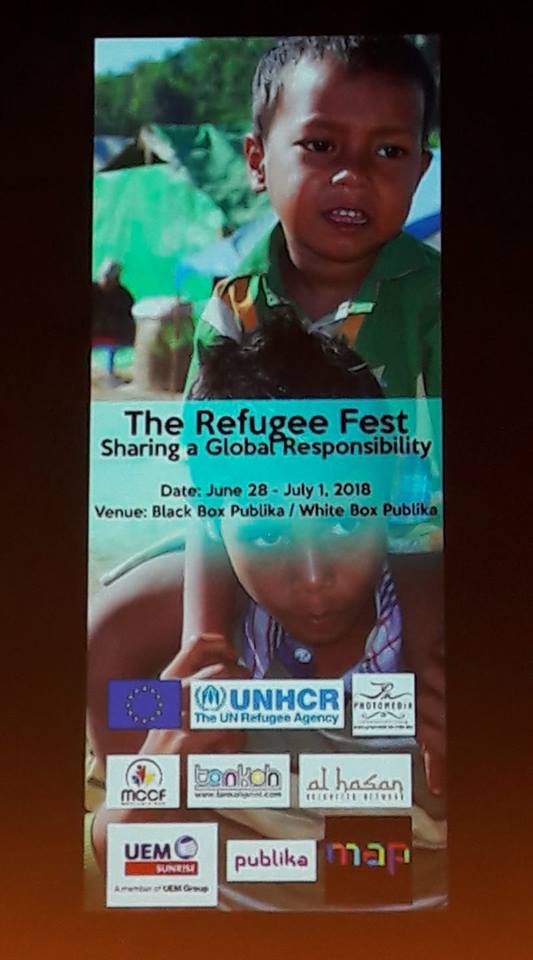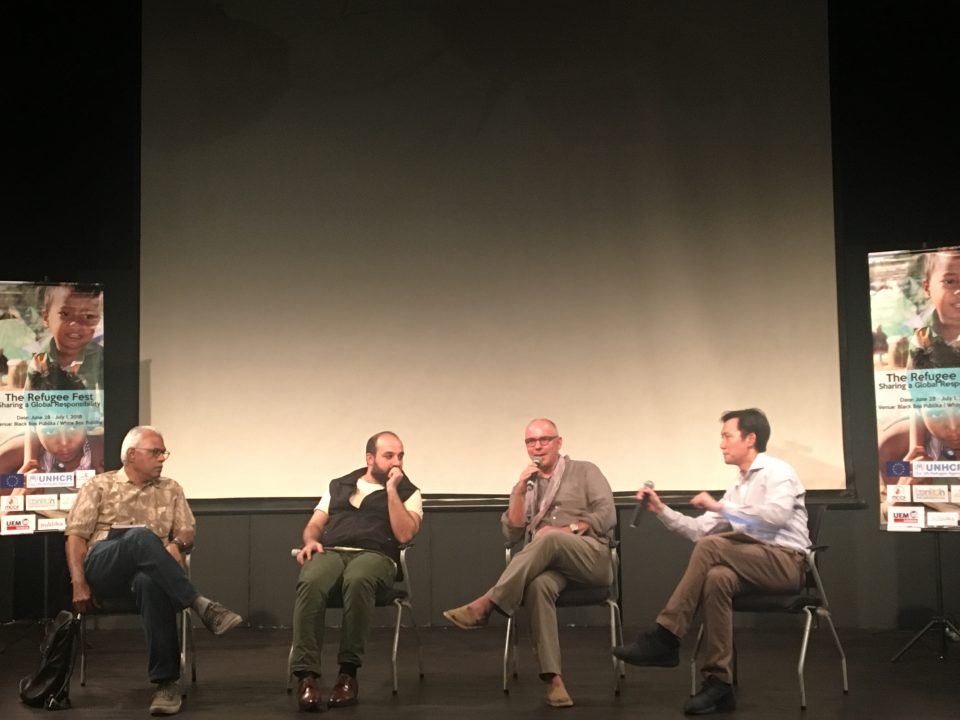
To me, poetry is a painting in writing. It uses aesthetics and words to express love or protest. That’s the beauty of poetry – the fact that flowery words and malleable language can thump its fist against suppression and injustice. And this is because poetry, like political language, is rarely spoken without intention.
Poetry as a form of resistance has been used from the time of the African slaves to the Vietnam War. Black Lives Matter to women’s movements have used poetry to crack down on walls of oppression and expose grim realities. Speaking truth to power, poetry is now commanding enough attention to get us to listen to voices of refugees worldwide.
I read through these poems by the different refugees in Malaysia and was hit by the pain behind their words. The violence experienced was strung together with the most intimate of details to convey their personal stories. But more importantly, laced throughout the suffering, is the hope for a future; the hope for a place to call home. Unfortunately, the world is facing its biggest refugee crisis since the Second World War.
More than 22 million people have been forcibly displaced from their country by war and targeted persecution. Internal conflicts are uprooting families, ravaging lives and contributing to further human rights violations. We see refugee deaths, refugees falling prey to traffickers, kids becoming victims of drug mules, statelessness, organ trafficking and arbitrary detention to both adults and children.
Despite this, we see a lack of political will to protect them. And it’s reflected in the closing of borders, securitisation of migration and migrants in the name of national security. Besides the push backs, we also see transfer agreements such as in the Bangladesh/Rohingya case where it’s akin to sending the Rohingya to their deaths in Burma. And violations of the principals of non refoulement, which is the cornerstone of the international refugee law.
Governments, instead, must create legal pathways for mobility, create more resettlement slots, put in place adequate Refugees Status Determination (RSD) procedures and provide integral protection for the refugees. It’s important to understand that protecting and promoting the rights of refugees are global responsibilities.
We have a new Pakatan Harapan-led government in Malaysia, which came to power because of its reform agenda. Pakatan Harapan has promised to ratify the 1951 UN Refugee Convention and allow the refugees to work. I however hope that the government could immediately look into gainful employment, access to healthcare and education while working on the ratification.
We have close to half a million refugees in Malaysia and it’s important that we embrace them not just as a collective responsibility but an investment as well. Refugees can contribute economically to the societies that welcome them in many ways: as workers, innovators, entrepreneurs, taxpayers, consumers, musicians, authors, theater artists and poets. Their efforts can help create jobs, raise the productivity and wages of local workers, lift capital returns, stimulate international trade and investment, and boost innovation, enterprise and growth.
The launch of this poetry book at The Refugee Fest by Charge d’Affaires, Carl Henrik of the European Union Delegation to Malaysia, is a great example of the things that the refugees are capable of, given the encouragement and opportunity. And in this case, it marks their contribution to the performing arts scene in Malaysia.
I wish these poets all the very best. And from my end, I pledge to continue lobbying the Malaysian government to look into recognising their rights, in my role as lawmaker and Chairperson of the ASEAN Parliamentarians for Human Rights (APHR).
– Charles Santiago, Chairperson of the APHR
The above is a glimpse into the poetry book ‘From Exile With Love’, a collection of poems spun by ten refugees hailing from different countries, all of whom are currently residing in Malaysia. Launched at the Refugee Fest on 28 June 2018 that was held in Black Box, Publika.
 The Selangor Journal team were present on the second day of the program, where we had the privilege to enjoy a film screening titled “Biate” by Fazil NC, witness a traditional Mon Umbrella Dance by the Mon Refugee Learning Centre, and had further boosted our knowledge on the crisis currently being faced by refugees globally with a panel discussion titled ‘Is the unfolding refugee crisis a global responsibility?’. During the panel, issues such as the need for access to healthcare, job opportunities, and most importantly, education for the children to be granted to the refugee community in Malaysia were brought up and discussed at length.
The Selangor Journal team were present on the second day of the program, where we had the privilege to enjoy a film screening titled “Biate” by Fazil NC, witness a traditional Mon Umbrella Dance by the Mon Refugee Learning Centre, and had further boosted our knowledge on the crisis currently being faced by refugees globally with a panel discussion titled ‘Is the unfolding refugee crisis a global responsibility?’. During the panel, issues such as the need for access to healthcare, job opportunities, and most importantly, education for the children to be granted to the refugee community in Malaysia were brought up and discussed at length.
However, what was perhaps more eye-opening than the panel discussion was the last act of the day, a one of a kind Oriental Flamenco performance by four young adult artists. Omar AlKhammash and his group of friends who had came up with a project called Ishtar, has a dream to give a voice to other refugees by educating the public that refugees too are able to possess great talent and abilities despite the suffering and oppression.
Buoyed by their beautiful interpretation of the suffering faced by their people through music, we find that these refugees, despite having being brought up in a different culture,religion, and having different customs, are profoundly akin to us. Like us, they too crave the bond of friendship with others in society, to be a part of a community, and above all, having a place to call their own.
Thus is the aim of the this four-day festival which ended on July 1st, had a mission to demonstrate the importance of inclusion and why we are stronger as a society because of the diversity.







